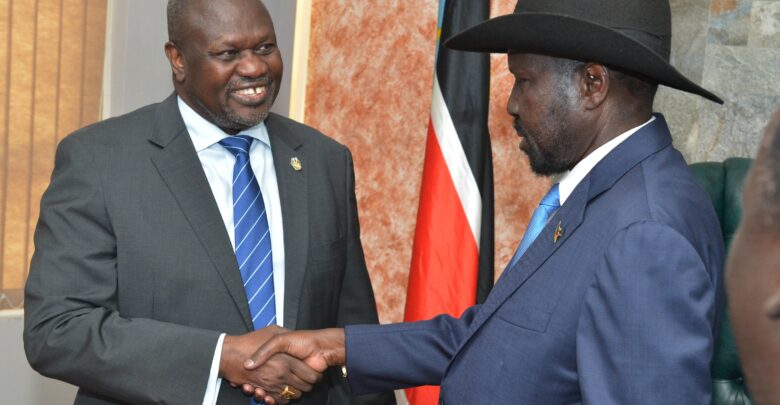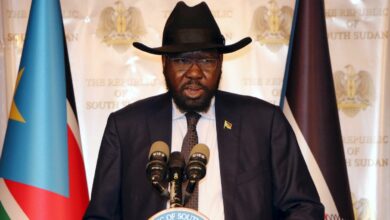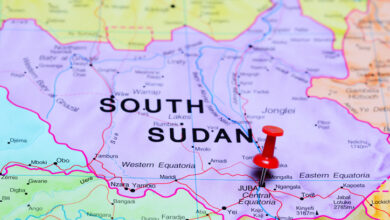South Sudan
South Sudan: President Salva Kiir, Vice President Riek Machar Agree On States Allocation

South Sudan’s President Salva Kiir and former rebel leader Riek Machar, who is currently the country’s vice president, have reached a deal on the selection of governors for the country’s 10 states, reported Reuters.
The allocation of states, especially those producing oil, the country’s main earner, was considered as one of the biggest threats to peace in South Sudan since a transitional unity government was formed in February.
South Sudan ended five years of civil war in 2018 but disagreements between Kiir and Machar have prevented the peace process from being concluded.
According to the United Nations, the conflict has killed an estimated 400,000 people and left more than 60 percent of the population food insecure.
Since 2013, Kiir and Machar have signed several ceasefire agreements but the agreements
Presidential Affairs Minister Nhial Deng Nhial said Kiir will nominate governors in six of the country’s 10 states namely Warrap, Lakes, Northern Bahr el Ghazal, Eastern Equatoria, Central Equatoria, and Unity, while Machar will nominate Western Equatoria, Western Bahr el Ghazal and Upper Nile. The South Sudan Opposition Alliance – SSOA will nominate for Jonglei State.
“Matters pertaining to the composition of the executive and the legislative branches of the [state] governments shall be discussed and agreed to at the later date,” Nhial said.
“With this development, a fresh impetus has been given for the process for the implementation of the agreement,” said Nhial.
He said everybody is hopeful that the latest development will pave way to further positive developments that will be carried out expeditiously.
The issues related to the composition of the executive and legislative branches will be agreed at a later date.
The decision comes amid growing international pressure from the United States, the UK, and Norway that released a joint statement earlier this month saying that any further delay creates uncertainty that undermines the (political) transition process.




